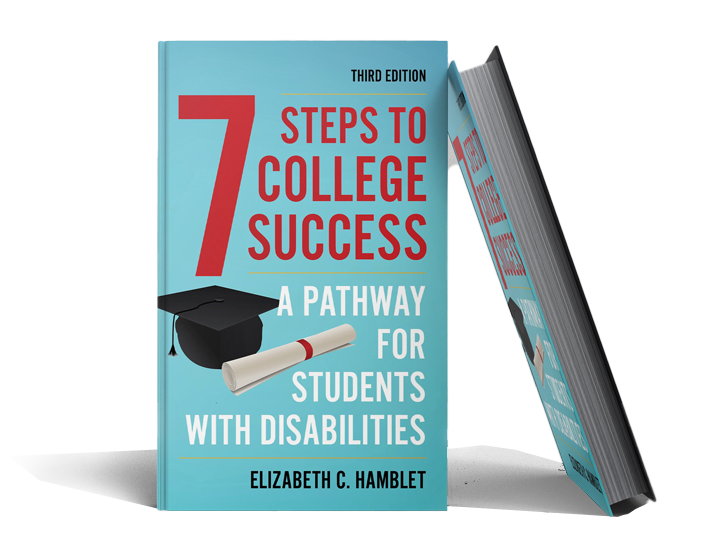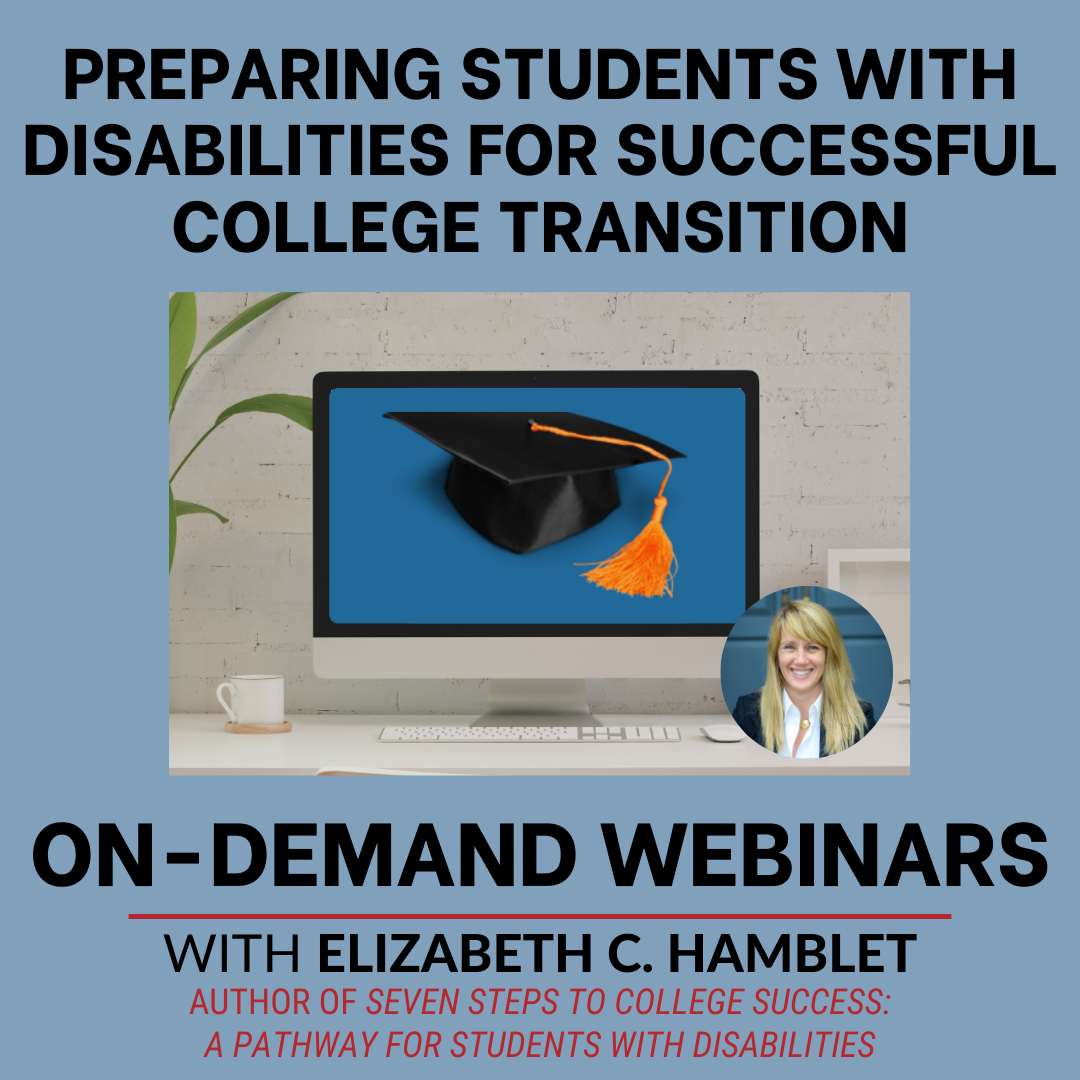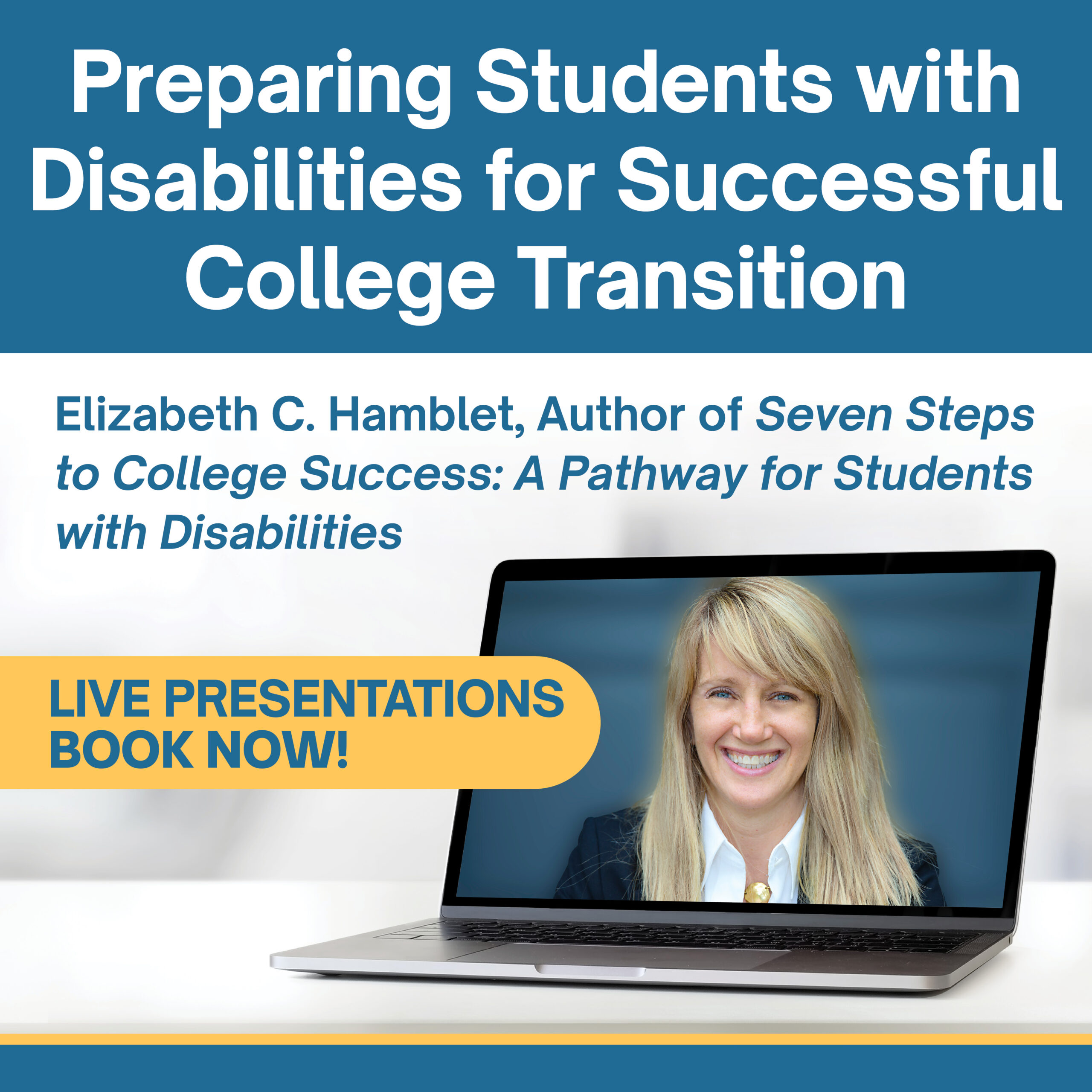Introduction
While the increased academic demands at college affect all students making the transition to that environment, the demands may have even more of an impact on students with disabilities. So how can they find success there?
When I wrote my book, I interviewed disability services directors at a variety of institution types – large state and small private schools, community colleges, an art school, and a highly-selective school – to ask what qualities they see in successful students and what strategies those students use.
What qualities do you see in students who are successful?
Spencer Scruggs is Director of the Center for Accessible Education at UCLA
They are inquisitive. They are constantly asking questions, engaging in the learning process.
They build strong relationship with professors. They’re also resilient. They are charging at all sorts of challenges. I think a lot of students with disabilities have this because they’ve had to be more resilient. The challenge is I think they sometimes haven’t had people help them lean into that resilience
Margaret Camp is Director of Student Accessibility Services at Clemson University
They demonstrate resilience – that’s the biggest one. I think it’s a better indicator than the testing or GPA. They are students who – after doing poorly on a test – seek out resources to enhance their skills tend to do well. They get engaged with the campus and the resources available. They understand themselves and the way they learn.
Students who are interested in bettering their own learning skills and adapting seem to be more successful. They are often engaged in self-inquiry and self-management. They work on organizational skills, time management skills – and it makes them stronger.
Marvin Williams is Director of Disability Resource Services at CSU Stanislaus
They are self-aware – they understand their disability, understand their functional limitations and can communicate them. They can advocate for their needs.
Also – they speak up early when they’re having difficulties. To use a metaphor, rather than coming to me when the house is on fire and they can’t put it out, they come when they first smell smoke. They contact me when they are first having difficulty – maybe with a professor – rather than at the end of the term after the final exam.
Students who persist are also successful. Because whether they have disability or not, they won’t make it if they don’t want to be here.
When students come in to see me at commencement time and thank me, I remind me that this success is theirs. When I was sleeping, they were studying. And they should thank their family, who made them coffee and gave them hugs to help get them through.
Catherine Getchell is Director of the Office of Disability Resources at Carnegie Mellon University
They have good self-advocacy skills, know what accommodations they need and how and when to use them.
They are also willing to seek out help if they encounter barriers they cannot resolve on their own.
Paul Harwell is Associate Director, ADA and 504 Compliance at Dartmouth College
Students who are successful are responsible about their tasks and assignments. They don’t have to be perfect to be successful – they may fail to turn in an assignment, miss a test, etc.
But the ones who are successful take ownership when they make a mistake. They’re forthright with us so that we have the information we need to understand their situation and serve them.
They also tend to be self-reflective, which means they are honest with their self about their needs, their workload, what works, what doesn’t, and ultimately know that the campus is full of dedicated people who want to be a resource for them if they reach out.
Doris Pierce is Director of Office of Accessibility Resources and Services at University of Central Arkansas
Students with disabilities who are successful come into my office understanding the impact of their disability. They can speak about any struggles they’ve had previously and any strategies and accommodations they’ve used.
And if they struggle once they get here, they come talk to us, which allows us to refer them somewhere else.
Eric Trekell was Director of the Center for Disability Services at Everett Community College at the time of his interview
They have good executive functioning skills. These students know how to stay organized and on top of things is really important.
Stacey Reycraft is Director of Student Accessibility Services at University of Mississippi
Students who are successfully typically are those who come into college with certain skills. They know what their disability is and how it impacts them.
They don’t have a sense of stigma or shame. They come in comfortable talking about it.
They know how to self-advocate. They’re comfortable seeking out other kinds of support on campus
They seek out support and assistance. They work with faculty to get extra help. They use the resources available to them.
Eric Trekell was Director of the Center for Disability Services at Everett Community College at the time of his interview
They have good executive functioning skills. These students know how to stay organized and on top of things is really important.
Deborah Braswell was Director of Disability Support Services at University of Montevallo at the time of her interview
They recognize realistically when they are struggling. They ask for help as soon as they need it, and can predict the areas where it might occur. If a student has always struggled with math, they should request tutoring in week 2 or 3, not in week 5 or 6 after a poor first test grade.
Students who do well are often those who plan study time into their schedule daily instead of just studying 7 hours the night before a test.
They use office hours appropriately.
They seek out workshops on better study habits and time management, etc. Most colleges offer them – and we simply wish more students would take part.




